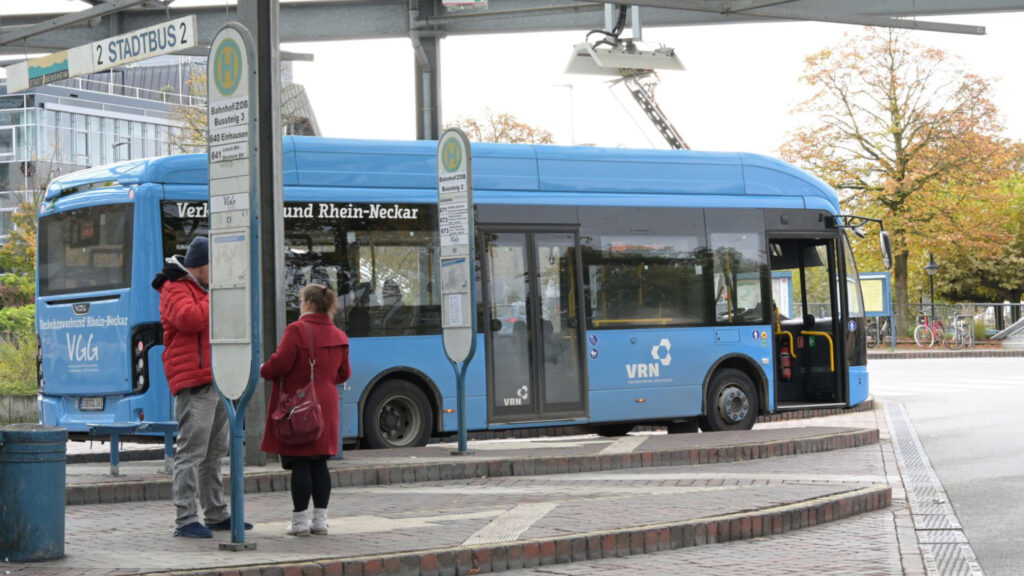High-performance charging for e-buses in public transport also possible without grid expansion
19 November 2024 | The nationwide pioneering pilot project ‘Buffered-HLL’ for energy- and cost-efficient high-performance charging with flywheel mass storage for electric buses in local public transport successfully concludes its twelve-month trial phase today. As part of a consortium, RLI experts and project partners have investigated the impact of route and intermediate charging at high-power charging stations on the operational processes and the energy and cost efficiency of e-buses in local public transport, first in test and then in regular operation. The data shows that the technology developed with the flywheel mass storage system at its core makes the construction of fast charging stations in suburban areas significantly easier and more cost-effective. This type of storage and charging system also reduces the load on the electricity grid.
In addition to RLI, the consortium includes the companies Adaptive Balancing Power (ABP), Isabellenhütte Heusler (IH), CuroCon and Verkehrsgesellschaft Gersprenztal (VGG). The project was subsidised by the Federal Ministry for Economic Affairs and Climate Protection.
A VGG e-bus, a Citea LLE 99 electric, was primarily used on three city bus routes in Bensheim, Hesse. The vehicle passed Bensheim railway station around every 30 minutes. A charging stop of around 150 seconds when boarding and alighting was enough for a complete tour.
Julian Brendel, researcher in the RLI unit Mobility with Renewable Energy, said at the end of the project: ‘The results show that innovative operating models help to save costs for transport companies, even in the long term. Intelligent charging strategies can reduce energy costs by up to 40 per cent.’
Karl Reinhard Wissmüller, Managing Director of Verkehrsgesellschaft Gersprenztal mbH: ‘The project was a complete success for us. The operating model of high-performance intermediate charging is energy-efficient and reduces our operating costs. We will now switch from project operation to continuous operation under our own management.’
Dr Hendrik Schaede-Bodenschatz, Managing Director of Adaptive Balancing Power GmbH: ‘The project has clearly shown that our flywheel mass storage systems make high-performance charging for electric buses in public transport simple and efficient, even without expanding the grid. This is an important signal to bus operators and local authorities that the grid does not need to be upgraded first, which is time-consuming and costly.’
The aim now is to examine the extent to which the operating and infrastructure model can be transferred to other regions. Background: The EU member states agreed this year that new city buses must no longer have any CO2 emissions from 2035. From 2040, an average CO2 reduction of 90 per cent must be achieved for newly registered vehicles.
Image: © Adaptive Balancing Power GmbH
